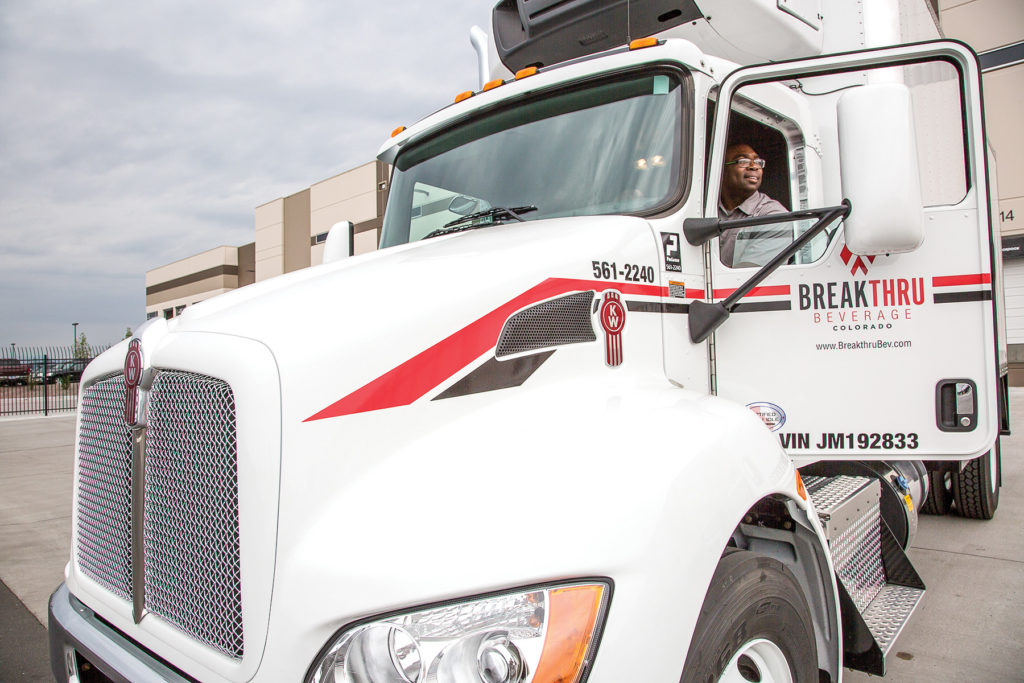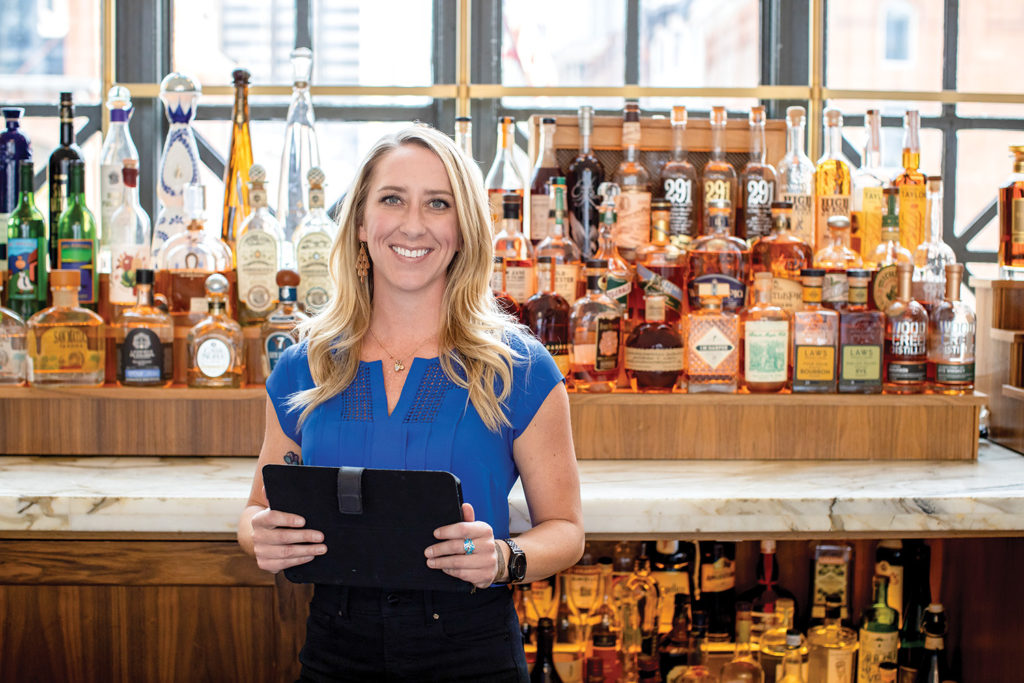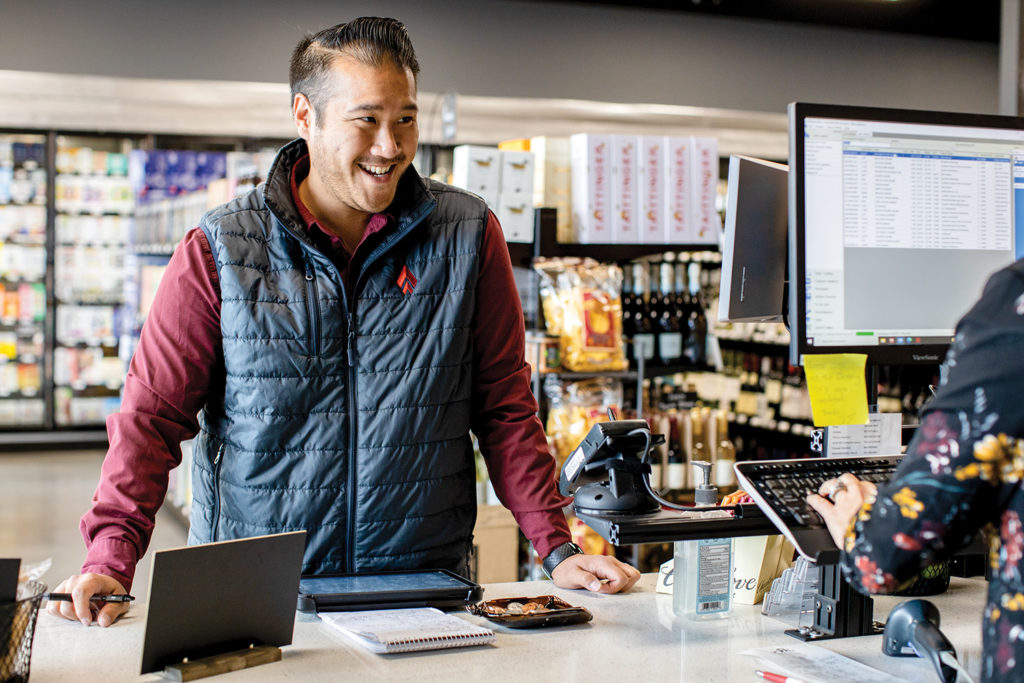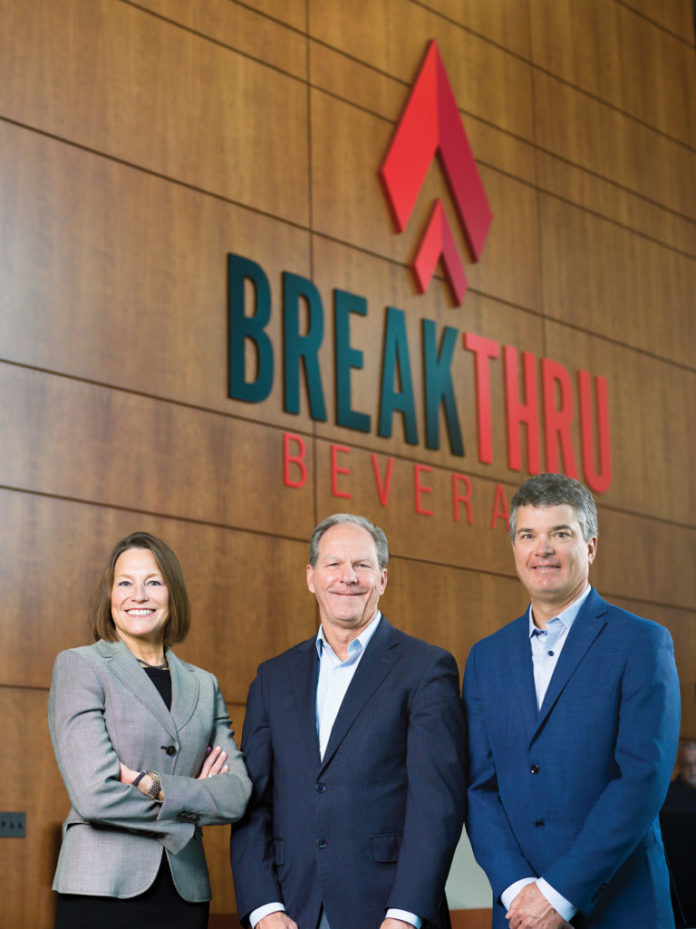Breakthru Beverage Group formed in 2016 through the merger of Charmer Sunbelt and Wirtz Beverage. Six years later, the beverage wholesaler and its affiliates operate in 15 states and Canada. The company employs 7,000-plus people, and represents a portfolio of wine, spirits, beer, RTDs, CBD beverages and cannabis (where legal), totaling more than $6 billion in annual sales.
“When we came together, we set out a vision to be the leading beverage company in America,” says Maggie Lapcewich, Chief Growth Officer, who led the merger in 2016. “We set a benchmark of ourselves against our industry peer groups. It’s about being the best at what we do. In that regard, we’re led by four areas of focus: growth, talent, production and innovation.”
Operating at a high level in those areas is challenging when extended across so many different states and two separate countries. But Breakthru has implemented efficient strategies that allow the company to standardize effectively throughout its large footprint.
“Standardizing operations means ensuring our people are on the same page and all trained to provide the best service in the industry,” explains Tom Bené, President and CEO. “We have established Centers of Excellence for digital, national accounts and analytics to make sure we are implementing uniform processes and best practices across our footprint. We are also investing in technology to increase performance, productivity and efficiency in these areas and others, all bolstering our performance-driven culture to produce even better results for our customer and supplier partners.”
These investments have ushered the company to the cutting edge of what’s possible in modern business.
“The key theme to what we’re doing digitally is we want to be the easiest distributor to work with,” says Mike Boswell, VP, Digital and Ecommerce at Breakthru Beverage Group. “We want to help leverage technology, people and processes to create a frictionless experience for all our customers, suppliers and employees.”
To that end, Breakthru launched Breakthru Now, a proprietary B2B ecommerce platform, in April of 2021.
“We developed Breakthru Now in close collaboration with our supplier and customer partners to ensure the platform was built for what they want, not just for what we need,” says Bené. “As a result, the capabilities developed are truly mutually beneficial and will bring them closer to today’s consumer.”

Breakthru Now
Breakthru Now followed a company strategy for rolling out new projects. It began with a pilot program in Maryland before expanding gradually elsewhere. After Maryland proved successful, the company extended the new service into additional states, one market at a time, now including Illinois, Virginia, Colorado and Wisconsin.
This digital platform has many valuable advantages. When placing orders, customers can see product prices, invoices and in-stock statuses in real time. If a desired product is out of stock, the service will recommend relevant replacements. Order histories are easily accessible. As are the abilities to pay, or communicate with sales consultants.
The front page of Breakthru Now provides a bevy of useful marketing, including curated information about the latest alcohol trends and seasonal offerings.
“Breakthru Now delivers all the info you used to get from a salesperson,” Boswell explains. “Now, our salespeople can spend less time as order-takers, and more time as consultants. That’s more time they can offer to sample a retailer on a new whiskey. More time spent doing tastings.”
In the last year, the platform saved 6,000 hours of punched-in time for salespeople, Boswell reports, while generating $2 million per week.
Most customers begin the service using its “robust search function,” Boswell says. “The search function is really important. We want to make sure that the user experience is seamless and easy.”
In addition to Breakthru Now, Breakthru utilizes the company’s partnership with the alcohol ecommerce provider Provi to serve customers digitally in all its markets. Like the wholesaler, Provi was founded in Illinois, in 2016. Breakthru (with Illinois roots dating back to the 1940s) seized on the chance to partner with an innovation leader in their own backyard.
“We became their first major wine and spirits customer,” Boswell says. “We’ve had a partnership with Provi since the beginning. We saw the opportunity in what they were building. If a customer wants to make a big order, like replenishing an entire backbar, it used to be they would have to call or text 16 different reps. Now they submit the order all through our website. Provi is integrated with Breakthru’s order-taking platform (Mobility), so all those orders automatically appear on the appropriate salesperson’s iPad.”
“That’s such a huge win for the customer,” he adds. “It’s about making sure everything is easy for the customer, and nothing more. This customer-first approach helps us win market share.”

Aspect Fine Wine
Another area of innovation that has paid off for Breakthru is the launch of Aspect in March 2021.
“We are also proud of our team and strategy dedicated to Aspect, our cohesive portfolio solution for fine wine, which launched well before the fine wine boom we are experiencing today,” says Bené.
This holistic fine wine strategy covers the company’s entire footprint. Outside of ERP-related projects, it represents the company’s largest sales-side project since Breakthru first came about. Motivation for Aspect included looking at where the wine market was heading.
“Luxury wine, by which we mean $15 and above, was starting to accelerate, with a lot of growth before Covid,” says Daren Cliff, Senior Director, Business Development, Aspect Fine Wine. “The more premium the wine, the more acceleration. It’s smaller volume, but greater growth. So we knew that we needed to become better resource partners to our suppliers and customers, because the final-end customer was moving in that direction.”
As the LDA consumer base shifts from Baby Boomers to younger generations, wine tastes have changed, Cliff explains. Millennials and Gen Z are not necessarily the same volume drinkers as their parents, but instead drink less with more focus on authentic, artisanal experiences. Armed with iPhones and insatiable curiosity, these consumers can quickly sniff out anything inauthentic. Newer wine drinkers search out quality and luxury first, and frequently want to know the full background of the products they consume. Trading up is common.
“The newer generations aren’t as interested in spending $10 each on two glasses of wine, but will spend $20 to $25 on one glass, and want to hear all about it,” Cliff says. “This is something that we also see on the spirits side: that the newer generations are not afraid of trial or spending money, but want something authentic. They want to know the story, the quality of it. They’ll dig into it via social media or a podcast.”
In other words, it’s a lot of information that bar and restaurant staff must now know about the wines they serve. This is tricky in our era of employment crunch. With so many on-premise businesses struggling for staff, those who are employed are so busy that they might lack time for deeper research. Here, Aspect helps.
“As much as we can, we want to be that extra layer of fine wine expertise, consulting our customers, removing undue burdens to help them excel at their jobs,” Cliff explains. “So many on-premise people are now working three jobs at once. We want to help them.”
The service is working. Last year, Aspect outpaced national growth rates in fine wine categories, Cliff says. In 2022, Breakthru has accelerated Aspect’s budget for growth and sales across the company’s footprint, while also building out the backend further.
“We’re seeing tremendous growth in Aspect, as consumers have become more educated about wine,” Bené says. “They’re trading up their at-home wine drinking, and are looking to try finer wines as they venture back into the on-premise.”
“Premiumization is still trending across segments,” he adds. “We’re seeing it in spirits and with RTDs as consumers expect more unique flavors, innovative recipes and emerging ingredients in these products. Online shopping trends are driving growth too, which is why we’ve invested so heavily in ecommerce.”
Acquisitions, Growth, Supply Chains
The scope of Breakthu continues to expand through company growth and acquisitions.
“We recently closed on the acquisition of Major Brands, now Breakthru Beverage Missouri, and are aiming to close on a deal to acquire J.J. Taylor’s Minnesota beer business early this summer,” says Bené. “This is just the beginning — we have the ambition to grow further, scale our business and ultimately be able to serve our partners in more geographies.”
The Missouri deal brought opportunity to enter new markets.
“It’s not just about strengthening where we are, but also growing our geographical footprint where we are not yet,” says Lapcewich.
She expects that the Missouri operations will move onto the Breakthru Now platform by the end of the calendar year.
“It’s important for our partners of all sizes that we’re doing everything we can to standardize across all markets,” Lapcewich says.
Breathru’s commitment to growth came in handy when Covid-19 suddenly upended the industry. The company had already considered new facility space in Delaware. Those wheels were in motion when the pandemic hit. In December of 2020, Breakthru announced a project to development a new, state-of-the-art, 282,000-square foot facility in Middletown, DE. This would consolidate existing operations in the state, while also providing increased efficiencies and enhanced customer service.
As the health crisis worsened, and next-door Pennsylvania shut down much of its alcohol industry, demand on Breakthru’s Delaware operations spiked.
“We broke ground in December of 2020 and we were able to accelerate everything so that we went live with the facility within 13 months,” says Art Wirtz, EVP of Operations. Continuing a tradition of family involvement, Wirtz is the grandson of Arthur M. Wirtz, founder of the business. “We did that to meet the future demand of our consolidated business.”
This includes two semi-automatic palletizers to support larger customers. Also, the facility has nearly doubled Breakthru Beverage Delaware’s storage capacity, with the option for additional expansion as needed.
This has proven helpful as Covid-19 significantly damaged the country’s supply chains.
“The supply chain has presented a number of challenges in the past few years, but has also enabled us to accelerate some of our evolution and innovations in technology,” Wirtz says. For instance, the use of demand-planning systems. “We’re working with suppliers on our connectivity, and forecasting what we’re looking to sell, integrating our supply-chain systems so that our customers have visibility into our forecast in the market.”

Kindred in Canada
Breakthru’s subsidiary Kindred is a full-service sales brokerage firm in Canada. It partners with licensed producers, retailers and government agencies to support and grow the legal cannabis industry.
“Kindred has allowed us to operate in a marketplace that’s federally legalized, helping us understand the customer needs up there,” Lapcewich says. “It allows us to know what’s trending in legal cannabis, and gives us a view into where things might be heading in the U.S., given time.”
“It’s an opportunity for us to understand and explore the relationship between Canadian and U.S. operations,” she adds. “And as we build and understand what these relationships are, we better understand what these might mean further down the road for the business.”
Lapcewich cautions that any talk of federal cannabis legalization in the U.S. remains purely speculative, of course.
Preparing for the Future
Even during Covid, Breakthru has grown and evolved across its ever-expanding footprint.
“I’m so proud of what our team has been able to do during all this change, while also mapping out our future path within our organization,” says Wirtz.
The key for this path forward remains the same for what has brought Breakthru here in the first place: cultivating customer and partner relationships.
“Relationships are the core of our business and that means working to best service our customers partners regardless of if they are government, independent, chains or others,” says Bené. “At the end of the day, we want to help them meet consumer demands and be in a position to quickly evolve to the ever-changing needs of today’s consumers. We focus on being good partners, understanding the dynamics of the marketplaces we work in and meeting the needs of our customers.”
Kyle Swartz is editor of Beverage Dynamics magazine. Reach him at kswartz@epgmediallc.com or on Twitter @kswartzz. Read his recent piece The 2022 Spirits Growth Brands Awards — Honoring the Hottest Brands.










